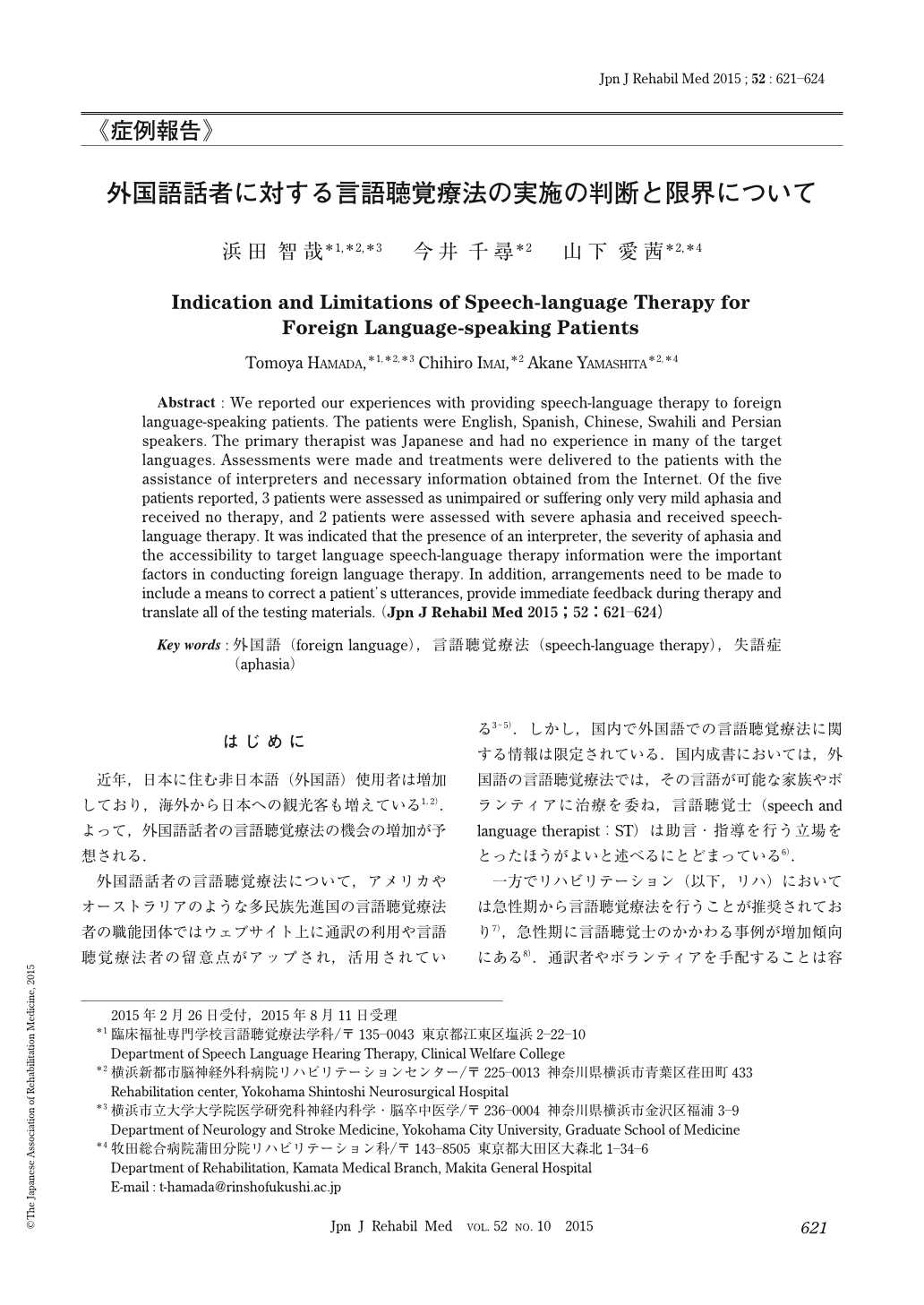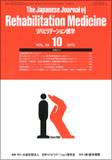Japanese
English
- 販売していません
- Abstract 文献概要
- 1ページ目 Look Inside
- 参考文献 Reference
はじめに
近年,日本に住む非日本語(外国語)使用者は増加しており,海外から日本への観光客も増えている1,2).よって,外国語話者の言語聴覚療法の機会の増加が予想される.
外国語話者の言語聴覚療法について,アメリカやオーストラリアのような多民族先進国の言語聴覚療法者の職能団体ではウェブサイト上に通訳の利用や言語聴覚療法者の留意点がアップされ,活用されている3〜5).しかし,国内で外国語での言語聴覚療法に関する情報は限定されている.国内成書においては,外国語の言語聴覚療法では,その言語が可能な家族やボランティアに治療を委ね,言語聴覚士(speech and language therapist:ST)は助言・指導を行う立場をとったほうがよいと述べるにとどまっている6).
一方でリハビリテーション(以下,リハ)においては急性期から言語聴覚療法を行うことが推奨されており7),急性期に言語聴覚士のかかわる事例が増加傾向にある8).通訳者やボランティアを手配することは容易でなく,かつ,外国語言語聴覚療法に必要な検査や訓練素材を入手するには多大な時間と労力が必要であるため,未学習な外国語を対象とすることは,ST個人の対応では限界がある.
当院(横浜新都市脳神経外科病院リハビリテーションセンターを指す,以下同)において外国語での言語聴覚療法を5症例に実施した.主たる療法者は日本語話者で通常の大学卒業レベルの英語を習得しているのみであった.自験例5例に対する言語聴覚療法の経験から外国語言語治療に対する実施の可否の判断と外国語未学習のSTが訓練をする上での限界について示唆が得られたので報告する.
Abstract : We reported our experiences with providing speech-language therapy to foreign language-speaking patients. The patients were English, Spanish, Chinese, Swahili and Persian speakers. The primary therapist was Japanese and had no experience in many of the target languages. Assessments were made and treatments were delivered to the patients with the assistance of interpreters and necessary information obtained from the Internet. Of the five patients reported, 3 patients were assessed as unimpaired or suffering only very mild aphasia and received no therapy, and 2 patients were assessed with severe aphasia and received speech-language therapy. It was indicated that the presence of an interpreter, the severity of aphasia and the accessibility to target language speech-language therapy information were the important factors in conducting foreign language therapy. In addition, arrangements need to be made to include a means to correct a patient's utterances, provide immediate feedback during therapy and translate all of the testing materials.

Copyright © 2015, The Japanese Association of Rehabilitation Medicine. All rights reserved.


